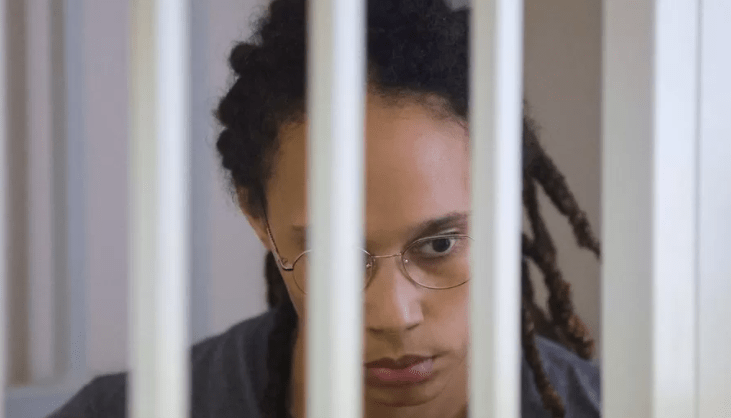November 17th 2022
What awaits Brittney Griner in Russian penal colony?
by bbc news

US basketball player Brittney Griner has reportedly been sent to a Russian penal colony in a remote region south-east of Moscow to serve a nine-year jail term for illegal drug possession. She joins tens of thousands of Russian women behind bars - and no-one knows how much of it she will serve, as the US is keen to organise a prisoner-swap to release her.
Until that happens, her life inside a Russian jail will certainly not be easy, and she will likely endure conditions as regular as any other inmate.
Griner lost her appeal against her drug conviction in early November and was then moved out of a Moscow detention centre to a penal colony. But it is only now that we have an idea where she is. A source has told Reuters news agency she is being held at the IK-2 women's penal colony in the remote village of Yavas in Mordovia, 500km (310 miles) south-east of the capital.
The phrase penal colony revives memories of the deadly Gulag of the Soviet era, but in this case it simply refers to a prison - with several rows of low-rise buildings housing communal barracks for inmates and separate structures housing workshops for inmates.
For days no-one, including her lawyers, knew where Griner had been sent. For Russia this is normal, and when inmates' families cannot afford a good lawyer it can sometimes take weeks for a letter to arrive from the jail.
Her jail is one of Russia's regular prison colonies, where most of 453,000 inmates are held.
Some grave crimes are punishable with time in cells and no access to open air at all. On the other end of the penitentiary scale are "colonies-settlements" for those committing lesser crimes. Those are more relaxed and even allow days away from the barracks.
Women make up around 5% of Russia's prison population, so there are far fewer correctional facilities for women which means relatives who want to visit have to travel further.
Griner's conviction will be of no surprise to anyone there: 13.5% of all sentences in 2021 were handed down for possession, smuggling or dealing illicit drugs. For women that number rises to 42%, although not all were custodial.
Russian police have for years been accused of beefing up crime statistics by planting drugs or pressuring detainees into confessions. This was not Griner's case: she admitted to having vape cartridges with cannabis oil in her baggage on her return to Russia in February to play club basketball during the US off-season.










